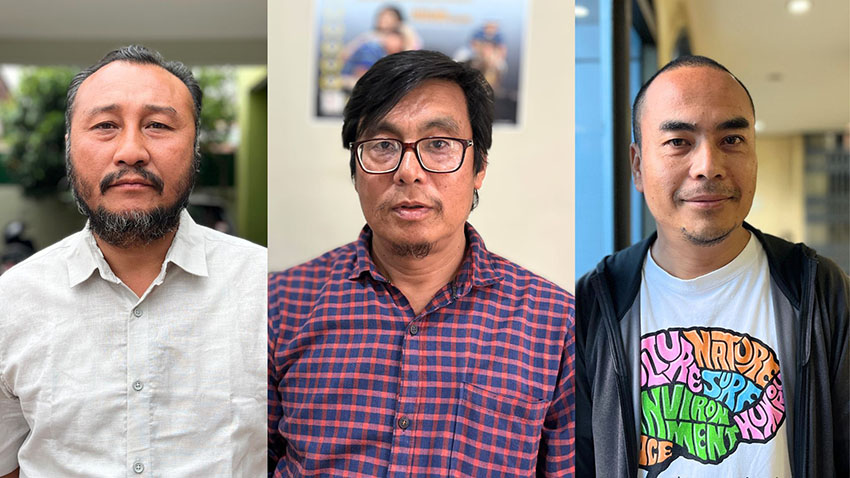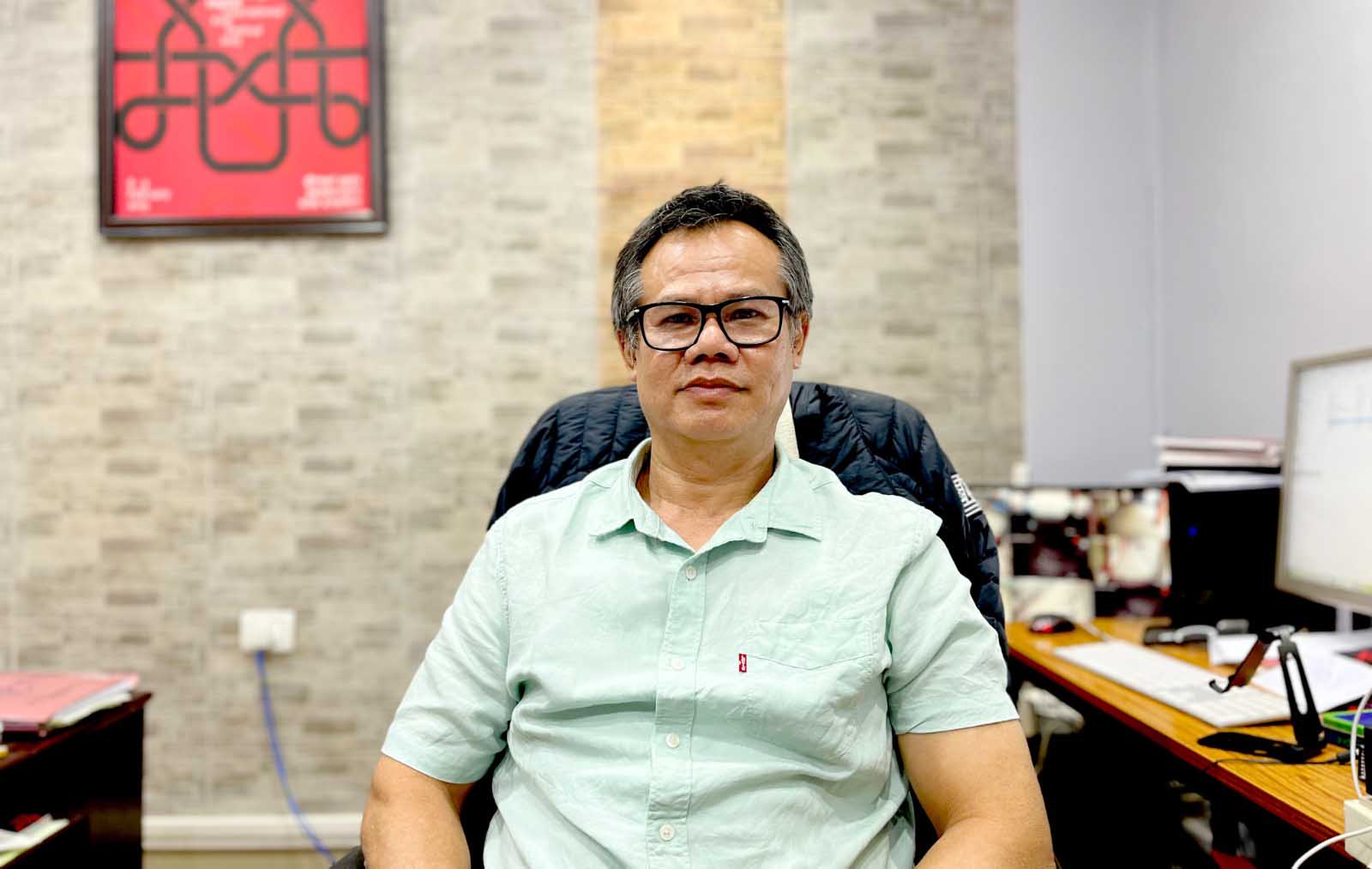I know and you know that there can be several stories and the modes of telling them can outnumber the stories we tell.
I happen to practice a mode of story telling in cinema at this point of my life where fiction is married to non-fiction or non-fiction proposes but the fiction wriggles out etc….etc……Believe me, this happened in my life not out of any aesthetic deliberation, in which I indulge at times, but only when my family life is absolutely in the family way. So, this mode of expression in cinema happened out of an existential compulsion to keep a marriage going.
Let me give names to the characters and add a little blur in my narrative to confuse the paparazzi. Teresa was born and brought up in a village surrounded by backwaters in Kerala, exactly like the protagonist film-maker Nelson. The father of Teresa and the mother of Nelson were followers of a rebel priest practicing Liberation Theology at the coastal villages of Kochi. Nelson by then was in Mumbai working as a commentator after an outright rejection at the Film Institute of India, Pune. Teresa loved his voice, enjoyed his sense of humor and married him. It was an arranged marriage.
They wandered at night through the banks of the prawns cultivating fields at Teresa’s village. Nelson was catching the fire flies by the swift movements of his hands like a sword fighter using his left and right hands. Teresa was collecting the fire flies caught by Nelson in an empty match-box. As Nelson was targetting a big fire fly and swirled his right hand in the darkness, a sudden scream numbed both of them which echoed through the prawns fields. The village poet smoking a bidi and taking a stroll for inspiration was hit right on his face. In a surrealist mode of smoking, Kerala Dinesh Bidi resembles fire flies at night in some coastal villages.
The magical realism of Teresa’s village charged the failed film-maker immensely. He asked the village poet to associate with him for the script of his first feature film – ‘TABLE MANNERS’ – and instantly started narrating it – story of a book worm priest, timid, withdrawn, a feather-like soul, who was always reading and brooding. Unknowingly and by accident the priest tasted a piece of crane meat masala prepared in an indigenous Toddy Parlour from a nearby island in the backwaters. Nelson was getting into a mode of oral tradition of story telling which all the film-makers invariably practice before actually making the film. About the nuances of a story, where a puritan soul by and by getting addicted to a masala taste and becoming lively to all the cooking smells and frying sounds in his parish…… But Teresa was visibly getting uncomfortable and wanting to get back home. The story session could not be continued.
After some years of their marriage, by then having a son and even getting some National Awards for his documentaries, Nelson was occasionally trying the story on others after drinks. At that time he was chosen for a script-writing workshop to be conducted by Jean-claude-carriere, the script writer of the legendary film-maker Louis Bunuel. Carrier had appreciated the story of the priest in his letter to Nelson. And the story session was resumed………….. By then Nelson had mastered the mode of oral film-making to near perfection. Only the beaten poet was missing. As the story session progressed with his six year old son and Teresa, Nelson noticed the cloud formation again on Teresa’s face.
“Are you unhappy because of the story ? An innocent priest getting addicted to a taste from a forbidden source which may hurt the sentiments of the church ? – Nelson asked.
“You know that we met each other through a rebel priest. Who cares about a church that ousted him and dumped the Bible. But you too dumped the Bible ” . She told Nelson.
“Me ? Bible ?
Again, an abrupt end to the story session. Teresa opened the Bible and started reading from the old testament – chapter five of Zechariah, sub-titled as ‘Flying scroll’.
“Again I looked up and saw a flying scroll. And he said to me, “what do you see?” I answered, “I see a flying scroll.” Then he said to me, “This is the curse that goes out over the face of the whole land. I have sent it out says the LORD of hosts, and it shall enter the house of the thief and the house of anyone who swears falsely by my name; and it shall abide in that house and consume it, both timber and stones.”
Teresa convinced Nelson that ‘Flying Scroll’ means, Feature film reels, flying from one theatre to another, selling dreams through the stories they tell. “This is a sin. If you practice it, a curse will fall on our son and family. I will not allow it to abide in our house and consume it, both timber and stones” she said firmly.
“Then what about documentaries ?”
“They tell the truth, not the feature films.”
“But, you know documentaries don’t reach people the way fiction does. And the truth can also be told through stories or telling the truth adopts story telling modes even when I deal with reality. How can you send Anand Patwardhan to heaven and Louis Bunuel to hell just like that?”
An aesthetic deliberation began at home finally, which incidentally was kicked off as a story session on a priest. Nelson was then taken to several healing sessions for deliverance from the sin of story telling. He was completely cured. Later, he made another film on Manipur – ‘IMAGINARY LINE’ – by miraculously managing the finances from the public exchequer. The new mode of story telling in his cinema created a gender determination problem between fiction and non-fiction. It confused Teresa and thoroughly confused the divine councilors. Even the Censor Board went into coma and passed the film uncut.
In a sequence at Imphal Air-port where the military personnel outnumber the ordinary citizens, Nelson’s Character comments:
(Here we have more military than the people !)
-which happens to summarise the naked political reality of the entire North-East today. In the next sequence where the protagonist is being stopped and interrogated by the military, the question being asked is:
“+É{É ¨ÉÊhÉ{ÉÚ®ú ¨Éå ÊEòºÉʱÉB +ɪÉÉ ?”
(Why are you in Manipur?)
“To shoot,” the film-maker answered.
“Do you have the permission to shoot?” the soldier asked in return which as well states obliquely, “who else is having the permission to shoot other than us?”
By now we know that the state shoots only for the cause of peace there and the Armed Forces are specially empowered to shoot any one, (through the Armed Forces Special Powers Act) of course, for the cause of peace. Nelson discovered several virtues in practicing this mode of cinema.
No. I – This is disowned equally by the establishment of fiction and non-fiction cinemas and thus enjoys the freedom of the blurred borders.
No. II- Need not particularly be answerable to ground realities when cornered by censor board or by a critic and can always jump into the convenient court of fiction.
No. III- Need not bother about the cumbersome conventions of story telling cinema.
Within this idiomatic flexibility, Nelson even scripted down his own idiotic life story in the guise of a documentary . To begin with, he even prepared a seminar paper on this premise and was planning to beat a writer- a fellow panelist – to maintain the leit-motif intact in the narrative, although the backdrop was shifted from Kochi to Kolkata. The ritual of beating a poet could generate some more capital in the media and rejuvenate it from a depression it suffered after the super hit theatre of capital punishment performance conferred to Dhananjoy Chatterjee in the city of Joy Goswami.
The trouble started again in the form of another priest. While reviewing Nelson’s film, ‘IMAGINARY LINE’, Fr. Gaston Roberge used a new coinage to categorise it – ‘A Faction Film’ (Fact + Fiction = Faction). After going through the review and noticing the word ‘Fiction’ in it, Teresa started praying for the deliverance of, Fr. Gaston Roberge for encouraging a half –sin . She also asked Nelson not to fool around anymore with their life story in the disguise of non-fiction.
Forgive me for cheating the readers of this article and posing as a film scholar on the subject of ‘Modes of story telling in cinema.’ In actuality, I am groping for one and genuinely looking for a clue from my readers. I want to help my dear friend Nelson who is presently lost in the oblivion and is facing a ‘fatwa’ for telling, his one and only story, like a true artist. I want to help him by suggesting a clean and quaint mode, for him to tell the stories – by him and on him.












